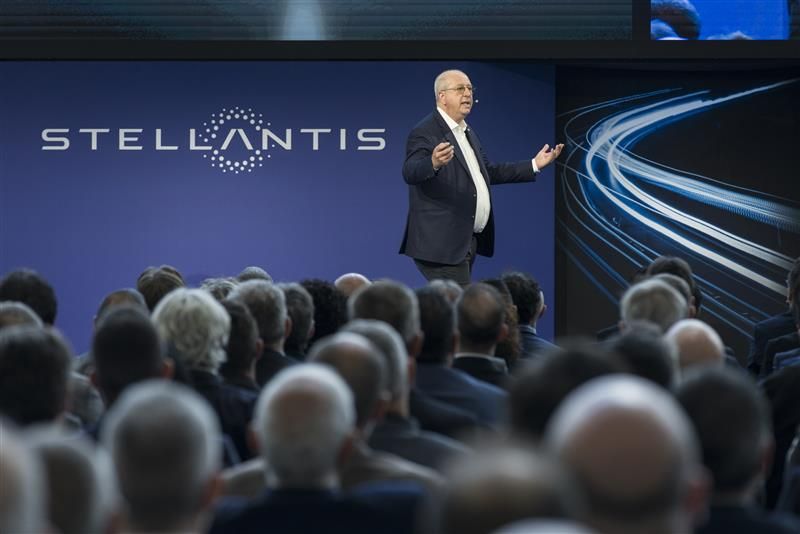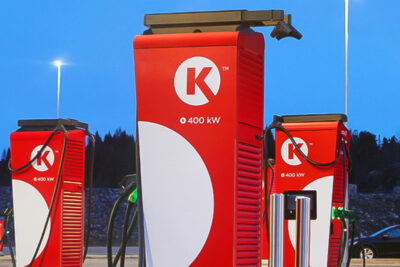Stellantis wants to reduce combustion engine production to meet CO2 fleet targets
Imparato explained that Stellantis would have to double its share of electric cars to 24 per cent of total sales next year in order to meet its 2025 target. If the demand for electric cars remains at the current level, the only way to achieve the target and avoid fines is to reduce the production of combustion vehicles.
Some car manufacturers, such as Renault, are calling for the CO2 fleet targets that will apply from 2025 to be reduced or postponed. Depending on the forecast, up to 28 per cent of cars sold in the European Union will have to be electric vehicles from next year, which is putting many manufacturers under pressure. After all, the proportion of new registrations in the EU accounted for by electric vehicles was recently only 13 per cent.
The EU regulations, which come into force on 1 January, set an overall target for the CO2 emissions of each manufacturer’s vehicle fleet of 95 grams per kilometre – according to preliminary data from the European Environment Agency, a significant reduction compared to the average actual emissions of 106.6 g/km in 2023.
Car manufacturers who fail to meet their individual targets will face fines of 95 euros per gram per vehicle. According to Luca de Meo, CEO of Renault, car manufacturers could face fines totalling 15 billion euros. Analysts at Barclays Bank put the amount at more than 10 billion euros.
Stellantis, however, rejects any delay or weakening of the regulations. Stellantis CEO Carlos Tavares said last week at the Paris Motor Show that Stellantis would meet its targets and that any delay to the new rules would mean that European car manufacturers would fall further behind the technologically advanced Chinese brands.
European COO Jean-Philippe Imparato said at the Paris show that Stellantis would have to double its share of electric vehicles to 24 per cent of total vehicle sales next year to meet its 2025 target. If the demand for electric vehicles remains at the current level, the only way to achieve the target and avoid a fine would be to reduce the production of combustion engines, Imparato said. The production of combustion engines would probably have to be reduced as early as November, as it takes an average of 60 days for a produced car to actually be registered.
According to Automotive News Europe, the fact that Stellantis has acquired a stake in the Chinese electric car manufacturer Leapmotor should benefit the company’s fleet target. This is because the cars sold by the joint venture Leapmotor International are included in Stellantis’ emissions figures. This is very practical, as the emissions of electric cars are zero and Stellantis can therefore offset the CO2 emissions of combustion engines from brands such as Citroen, Fiat, Opel or Peugeot with Leapmotor cars. This sheds a different light on why Stellantis is currently pushing hard with the European launch of Leapmotor, has already opened the order books for the C10 and T03 and can hardly wait for the market launch of the B10.
To ensure Stellantis is on track to meet its CO2 emissions target, Imparato said it will base its overall production budget on its EV order portfolio. “Given that we produce only vehicles covered by a customer order, we’ll assemble as many ICEs as those needed to keep the EV share at the required level,” he said.
Jean-Philippe Imparato said he has several levers at his disposal to increase EV sales, with targets tailored to each European market depending on the penetration of EVs. For example, he said that dealers in Spain and Italy, where the market share of EVs is less than 5 per cent, do not need to sell 20 per cent EVs next year, but dealers in the Netherlands might need to reach 50 per cent.
The company will increase incentives for dealers to sell electric cars, he said. “If they play the game, they’ll earn big money,” said Imperato, adding that the new incentive programme will reward the entire sales chain, from salespeople to area managers. Another option Imperato sees is to raise prices for combustion engine models if it becomes clear that the CO2 fleet targets cannot be met otherwise.





0 Comments